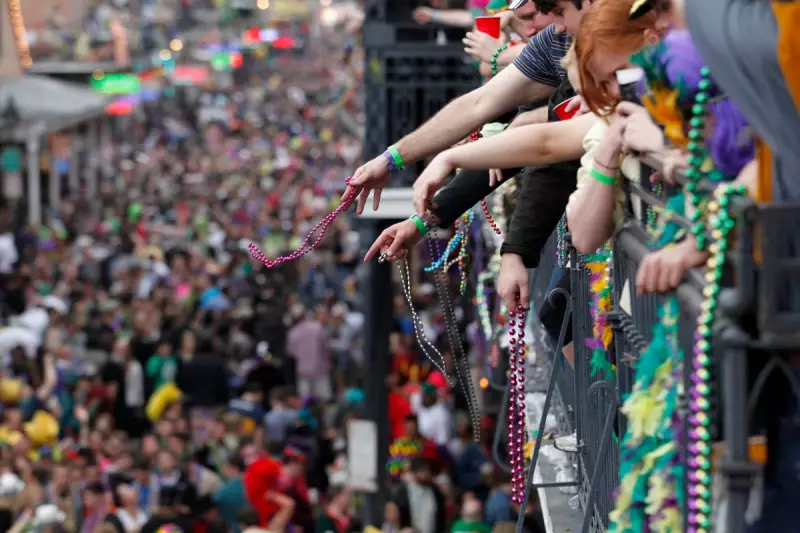
Multicultural Hub Prepares for Federal Immigration Operation
The vibrant city of New Orleans, celebrated worldwide for its jazz heritage, Mardi Gras festivities and distinctive Creole cuisine, is preparing for the arrival of a substantial federal immigration enforcement operation that has sparked significant concern among its diverse communities.
Operation "Swamp Sweep," described as an extensive, months-long immigration crackdown, is scheduled to commence in southeast Louisiana on December 1, though the city anticipates the deployment of up to 250 federal Border Patrol agents could begin as early as this Friday.
Political Divide Over Enforcement Approach
The operation has exposed a deep political rift between New Orleans' Democratic leadership and Louisiana's Republican governor, Jeff Landry, who has actively supported the Trump administration's immigration enforcement agenda. Governor Landry has pursued legislation and legal challenges to align New Orleans with federal immigration efforts, making this deployment the latest escalation in that campaign.
Adding to the complexity, the New Orleans Police Department was recently released from a federal reform agreement, removing legal protections that had long shielded its officers from participating in immigration enforcement activities.
The operation will be commanded by Border Patrol Commander Gregory Bovino, who previously oversaw similar aggressive campaigns in Los Angeles, Chicago and Charlotte, North Carolina.
Louisiana's Unexpected Role in Immigration Detention
Despite not sharing an international border, Louisiana has emerged as one of America's largest detention centres for Immigration and Customs Enforcement, with capacity for more than 6,000 detainees. In September, the state inaugurated the "Louisiana Lockup" facility within a notorious state prison specifically to house immigrants deemed dangerous by federal authorities.
Governor Landry has frequently highlighted crimes involving suspects with questionable immigration status, including the murder of a French Quarter tour guide that involved a Honduran man who entered the country illegally.
Cultural Diversity Under Pressure
New Orleans boasts a rich cultural tapestry woven from French, Spanish, African and Native American influences. The city is home to more than 10,000 ethnic Vietnamese residents who settled after the Vietnam War, while monuments acknowledge the thousands of Latino workers who helped rebuild after Hurricane Katrina. The region's unique Cajun heritage traces back to French-speaking colonists exiled there in the 18th century.
Mayor-elect Helena Moreno, a Mexican-American immigrant, expressed serious concerns about the operation's potential impact. "I'm very concerned about due process being violated, I'm very concerned about racial profiling," Moreno told The Associated Press, noting widespread fear within the city and efforts to educate potential targets about their rights.
Advocacy Groups Voice Opposition
Rachel Taber, an organiser with New Orleans advocacy group Union Migrante, warned that the influx of federal agents would have damaging consequences. "The same people pushing for this attack on immigrants benefit from immigrant labour and the exploitation of immigrants," Taber said. "Who do they think is going to clean the hotels from Mardi Gras or clean up after their fancy Mardi Gras parade?"
Legal and Policy Conflicts Intensify
The political conflict has extended to legislative battles, with Louisiana's GOP-dominated legislature passing laws threatening jail time for law enforcement officials who delay or ignore federal immigration enforcement efforts. Additional measures require state agencies to verify, track and report undocumented immigrants receiving state services, while another prohibits city policies that limit cooperation with federal immigration authorities.
Republican state Senator Jay Morris, who sponsored the law penalising obstruction of immigration enforcement, defended the legislation: "Their enforcement of laws is indiscriminate at best, corrupt at worst. Apparently we have to have a law to tell people not to break the law."
Uncertainty for Local Law Enforcement
The conclusion of federal oversight for the New Orleans Police Department creates legal uncertainty for officers who may receive conflicting directives from city and state leaders, according to the city's Independent Police Monitor Stella Cziment.
New Orleans Police Chief Anne Kirkpatrick stated that while her department will work with federal agents to ensure public safety, departmental policies view immigration enforcement as a civil matter outside their jurisdiction. She emphasised that these policies "are not in conflict" with state laws.
Meanwhile, Louisiana Attorney General Liz Murrill, with Department of Justice support, has sought to end federal oversight of the sheriff's office, arguing it hinders the state's ability to enforce immigration law. Court documents reveal that since 2022, the city jail has complied with only two of 170 detainer requests from immigration authorities.
As the December 1 operation start date approaches, New Orleans finds itself at the centre of a national debate about immigration enforcement, with its multicultural identity and community relationships hanging in the balance.





